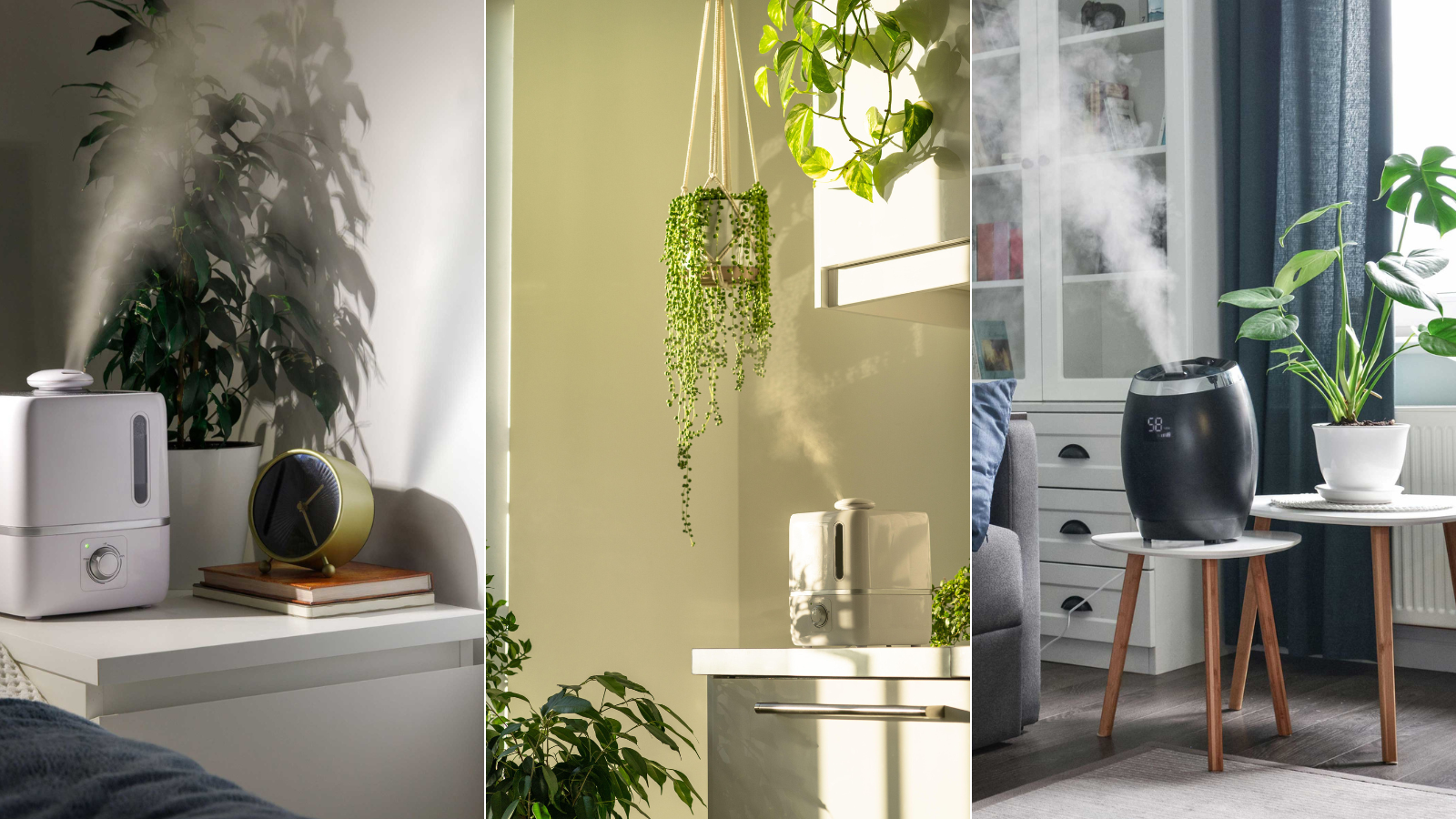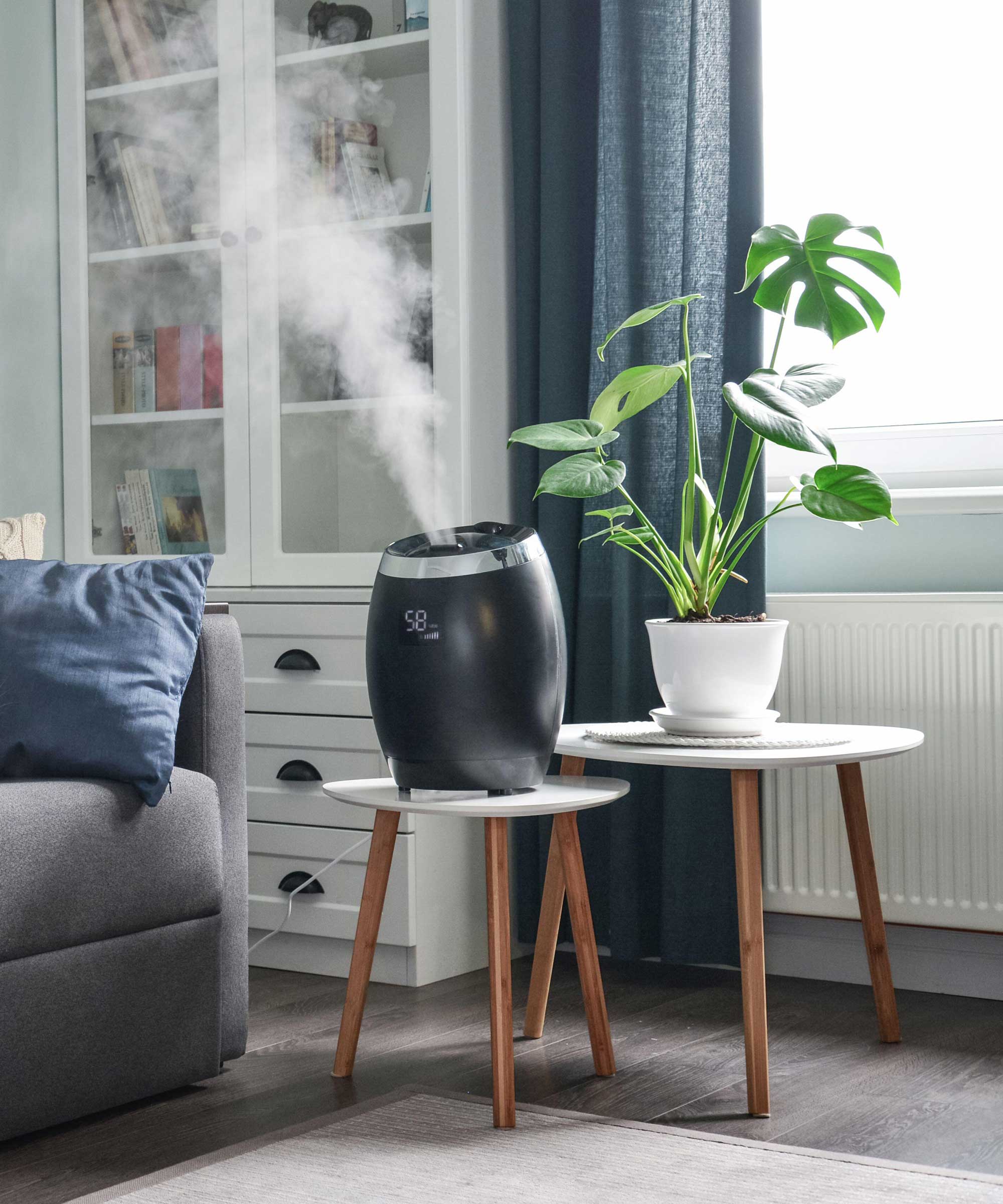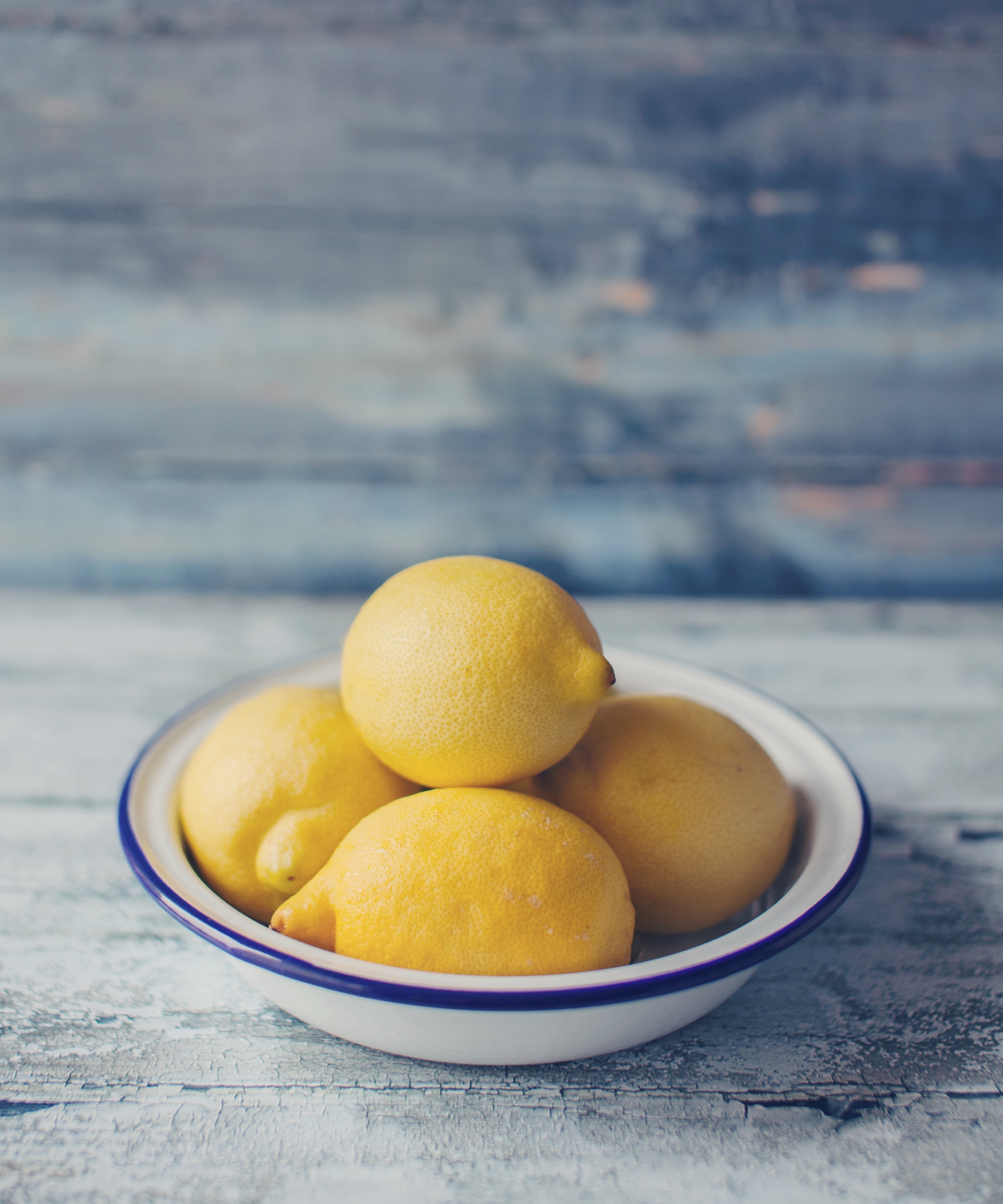How to clean a humidifier without vinegar, according to air quality pros
Air quality experts and cleaners advise against cleaning this appliance with vinegar, and luckily there is a range of natural alternatives to keep yours running smoothly


Sometimes, having our heating on in winter can cause the air in our homes to dry out, making us feel congested and leaving our skin dehydrated – which is where a humidifier comes in. Of course, keeping your humidifier clean is key if you want to keep it functioning as it should, and in turn maintaining good air quality.
For this particular home maintenance task, you may want to avoid cleaning with vinegar because, according to HVAC professional Josh Mitchell, it could harm the internal components of the humidifier, and because of the strong smell that can linger and be dispersed into the air, which may not be all too pleasant.
Plus, as air quality pro Michael Rubino points out, some humidifiers have rubber, plastic, and metal parts that could be adversely affected by the acidity of the vinegar.
How to clean a humidifier without vinegar
Here is how to clean up your humidifier without vinegar. While these cleaning tips should be applicable to your machine, we recommend you check the instructions for your particular model before you start, just to be on the safe side.


Josh is an HVAC expert and the owner of airconditionerlab.com and has years of experience tackling the challenge of home cooling. Josh has explored various innovative methods to cool down living spaces during hot weather.

Michael Rubino, indoor air quality and toxic mold expert, is the founder of HomeCleanse, a company aiming to end the worldwide health epidemic caused by poor air quality and toxic indoor environments. Michael is a council-certified Mold Remediator by IICRC and ACAC and a contributing member, sponsor, and speaker for the Indoor Air Quality Association.
Use other natural methods

Diana Ciechorska, general manager at New York-based cleaning company Park Slope Cleaning, comments that she has received a lot of requests about humidifiers from clients recently. Many are concerned with indoor air quality, especially in the winter when our heating systems are working hard to keep us warm at home.
'While vinegar is effective, we advise our clients alternatives like hydrogen peroxide, lemon juice, dish soap, or baking soda,' she explains. 'We always say to rinse thoroughly for a clean and safe humidifier.'
Below, Diana shares the best ways to clean a humidifier without vinegar.
Hydrogen peroxide: 'Mix equal parts of 3% hydrogen peroxide and water. Pour the solution into the base and tank, letting it sit for 30 minutes. Rinse thoroughly with clean water,' she suggests. You can pick up 3% hydrogen peroxide inexpensively at Amazon.
Lemon Juice: 'Mix lemon juice with water in equal parts. Let the solution sit in the tank and base for 30 minutes. Rinse thoroughly to remove any residue.'
Baking soda and water: Baking soda, at Walmart, can be good for removing deposits or stains. 'Create a paste with baking soda and water. Apply the paste to stubborn areas, let it sit, then scrub with a brush. Rinse thoroughly to eliminate any baking soda residue.'

Diana is the general manager at Park Slope Cleaning, a commercial cleaning company based in New York City. The organization's commitment to transforming the perception of cleaning services is rooted in the understanding that a clean space not only creates a sense of harmony but also contributes to overall well-being.
Stagnant water is a bacterium's best friend, so remember to regularly empty the tank and reservoir, too. Avoid mixing hydrogen peroxide and white vinegar, and never use bleach, as you will run the risk of inhaling its harmful fumes in the mist coming from your humidifier.
FAQs
Can you clean a humidifier with dish soap?
'Dish soap alone will generally not remove mineral deposits and other particles on the surface entirely, so it shouldn’t be the singular product used to clean a humidifier,' comments Michael Rubino. 'It’s also not as powerful as a disinfectant.'
Rubbing alcohol works well as a disinfectant, as long as you rinse thoroughly.
It depends on how dirty the humidifier is, though, as mild dish soap and hot water will be suitable for the tank and base of your humidifier for routine cleans. Be sure to rinse thoroughly to remove soap residue, as otherwise, this could negatively impact the machine's performance.
If you can, use distilled or demineralized water in your humidifier. This will prevent mineral deposits from building up inside the humidifier in the first place. Such deposits, as Rick Sun, HVAC and indoor air quality expert points out, can make things run less efficiently and cause clogs.
Careful cleaning will keep the humidifier working well for years to come, and given that these home appliances helps ease cold and flu symptoms, they are well worth taking care of, helping us sleep better, too.
Sign up to the Homes & Gardens newsletter
Design expertise in your inbox – from inspiring decorating ideas and beautiful celebrity homes to practical gardening advice and shopping round-ups.

Millie Hurst is a freelance lifestyle writer with over six years of experience in digital journalism. Having previously worked as Solved Section Editor at Homes & Gardens and Senior SEO Editor at News UK in London and New York, Millie has written for an array of homes brands including Livingetc and Real Homes and was formerly Senior Content Editor at Ideal Home. She has written and edited countless features on home organization, decluttering and interior design and always hopes to inspire readers with new ways to enjoy their homes. She loves to weave nature-inspired decor and nods to time spent in Italy into her own home.
-
 How to clean a patio – 6 different methods, and when you must use a chemical cleaning agent
How to clean a patio – 6 different methods, and when you must use a chemical cleaning agentFrom manual scrubbing, natural solutions or calling in the pros, industry experts reveal the benefits and considerations of each method
By Andy van Terheyden Published
-
 Kris Jenner's favorite air fryer, the Ninja Crispi, is the perfect small kitchen solution – it deserves a place on the most compact of countertops
Kris Jenner's favorite air fryer, the Ninja Crispi, is the perfect small kitchen solution – it deserves a place on the most compact of countertopsKris approves of this compact yet powerful air fryer, and so do our own kitchen appliance experts, praising it for its multifunctionality
By Hannah Ziegler Published